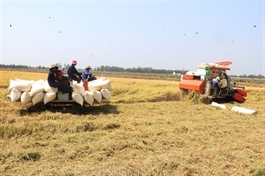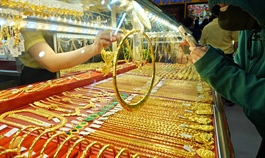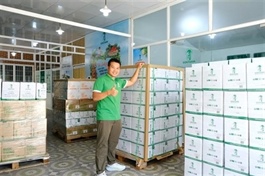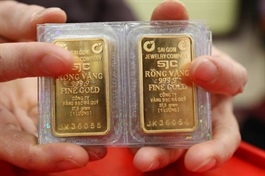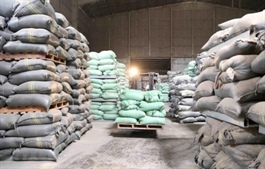Proposal to abolish quotas on Vietnamese shrimp imported into South Korea
Proposal to abolish quotas on Vietnamese shrimp imported into South Korea
The Việt Nam Association of Seafood Exporters and Producers (Vasep) has just sent Official Dispatch 47/CV-VASEP to the Prime Minister, the Ministry of Industry and Trade, the Ministry of Agriculture and Rural Development, and the Ministry of Foreign Affairs requesting the abolition of quotas for Vietnamese shrimp imported into South Korea.
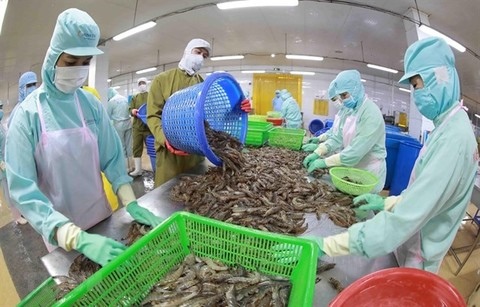
Shrimp processed for export. — VNA/VNS Photo |
This year is the 10th year of implementing the Việt Nam-Korea Free Trade Agreement (VKFTA). According to the roadmap, most seafood products have a tax rate of 0 per cent.
However, according to quota commitments, there are still a group of seven seafood product lines from Việt Nam to South Korea that only enjoy preferential tariffs based on a quota, currently at 15,000 tonnes per year.
Specifically, for this group, South Korea only exempts Việt Nam from import tax under VKFTA for 15,000 tonnes per year.
The volume of imported products exceeding the quota will be subject to a base tax rate of 20 per cent.
Thus, for key shrimp products alone, 34-48 per cent of Vietnamese shrimp output imported into South Korea is subject to an out-of-quota tax of 20 per cent in the 2016-2023 period.
This disincentivises importers to increase purchases of Vietnamese shrimp to serve the growing demand in South Korea, according to Vasep.
They are considering buying more shrimp from other countries such as Peru that also have free trade agreements with them, but the import tax rate has returned to 0 per cent with a five-to-seven-year roadmap under the FTA with South Korea.
This eliminated all tariff advantages from VKFTA for Vietnamese frozen shrimp products in the South Korean market, said Vasep.
Facing this situation, requesting South Korea to remove the tariff mechanism for Vietnamese frozen shrimp under VKFTA was very urgent to protect the market share and long-term benefits of Vietnamese shrimp in the market, it said.







